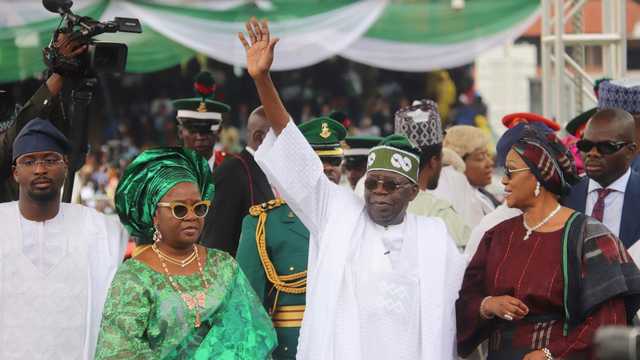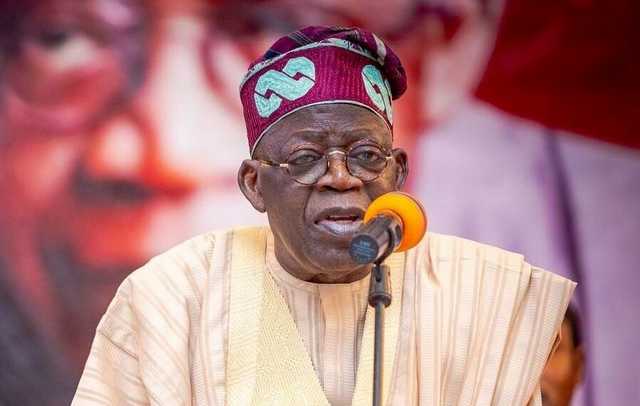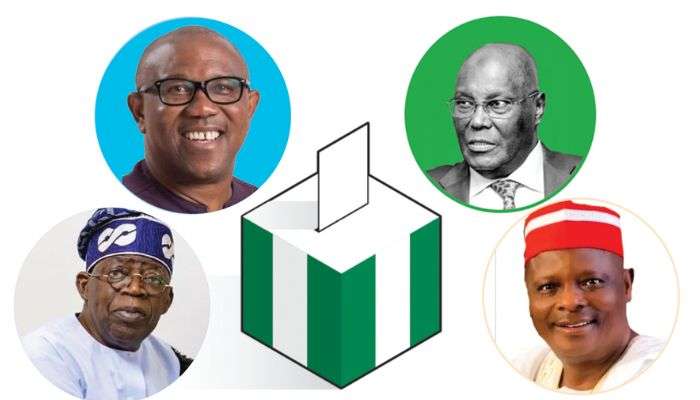
Bola Ahmed Tinubu has been sworn in as the 16th president of Nigeria. The 71-year-old took the oath of office Monday at The Eagles Square in the country’s capital of Abuja in the presence of world leaders and their representatives.
Mr Tinubu promised to work for the good of all Nigerians, including those that do not agree with him politically.
“Our administration shall govern on your behalf but never rule over you,” Tinubu said in his inaugural address. “We shall consult and dialogue but never dictate. We shall reach out to all but never put down a single person for holding views contrary to our own.”
The former Governor of Lagos State also promised to unite the country, which many believe is already divided across ethnic and religious lines.
Bola Tinubu was declared the winner of the controversial presidential election held on February 25, scoring 8,794,726 votes. He defeated his closest rival and former Vice President Atiku Abubakar of the People’s Democratic Party and the Peter Obi of the Labour Party, who scored 6,984,520 and 6,101,533 votes, respectively.
Tinubu had promised to hit the ground running on his first day as president, and his first major but controversial decision was announced in his first speech when he said his government was removing the controversial petroleum subsidy.
‘Subsidy is gone’
President Tinubu, in his inaugural speech, said the government can no longer afford the payment of petroleum subsidies, which has “increasingly favoured the rich more than the poor.”
“Subsidy can no longer justify its ever-increasing costs in the wake of drying resources,” Tinubu said.
“We shall instead re-channel the funds into better investment in public infrastructure, education, health care and jobs that will materially improve the lives of millions,” he added.
Nigeria is a country that depends solely on imported petroleum products, at least for now. The government subsidizes these products, resulting in a reduced cost for consumers. However, for several years, there have been complaints of corruption in the petroleum sector. Top officials are accused of not being honest with the quantity of fuel being imported. Successive governments had attempted to do away with the subsidization programme, but resistance from the labour unions had always prevented them from doing so.
Tinubu’s decision would mean citizens would pay higher for petroleum products in a country with an epileptic power supply where many depend on power-generating sets to light up their homes. Following his speech, the prices of the products have doubled in many parts of the country, as citizens have crowded fueling stations to panic-buy.
The promise of economic prosperity
Mr Tinubu promised, in his speech, to revive the dwindling Nigerian economy and tackle the alarming unemployment rate in the country.
“On the economy, we target a higher GDP growth and to significantly reduce unemployment,” Tinubu said, promising to make electricity available for businesses and homes.
The new President also promised major agricultural reforms and continue with the infrastructural programs of the previous administration of General Muhammadu Buhari.
Litigation over the election continues
Although Tinubu has been sworn in as President, it is still uncertain if he will stay in the seat for the entire four-year term. That will only happen if Presidential Election Tribunal and the country’s Supreme Court affirm his victory.
Mr Atiku Abubakar and Peter Obi are claiming victory in the last election, and they have submitted their petitions before the Tribunal. The next seating is expected to be on Tuesday (May 30). The Court has 180 days to rule on the petition. It could either affirm Tinubu’s victory, nullify the election, or declare one of the other two contestants as the winner. Until then, opposition parties hope Tinubu will be a temporary president.
Read more about President Bola Tinubu






Someone said he is a drug lord